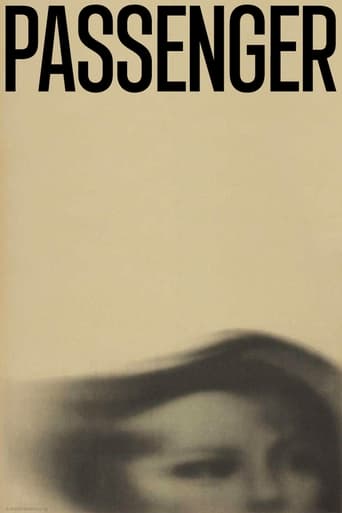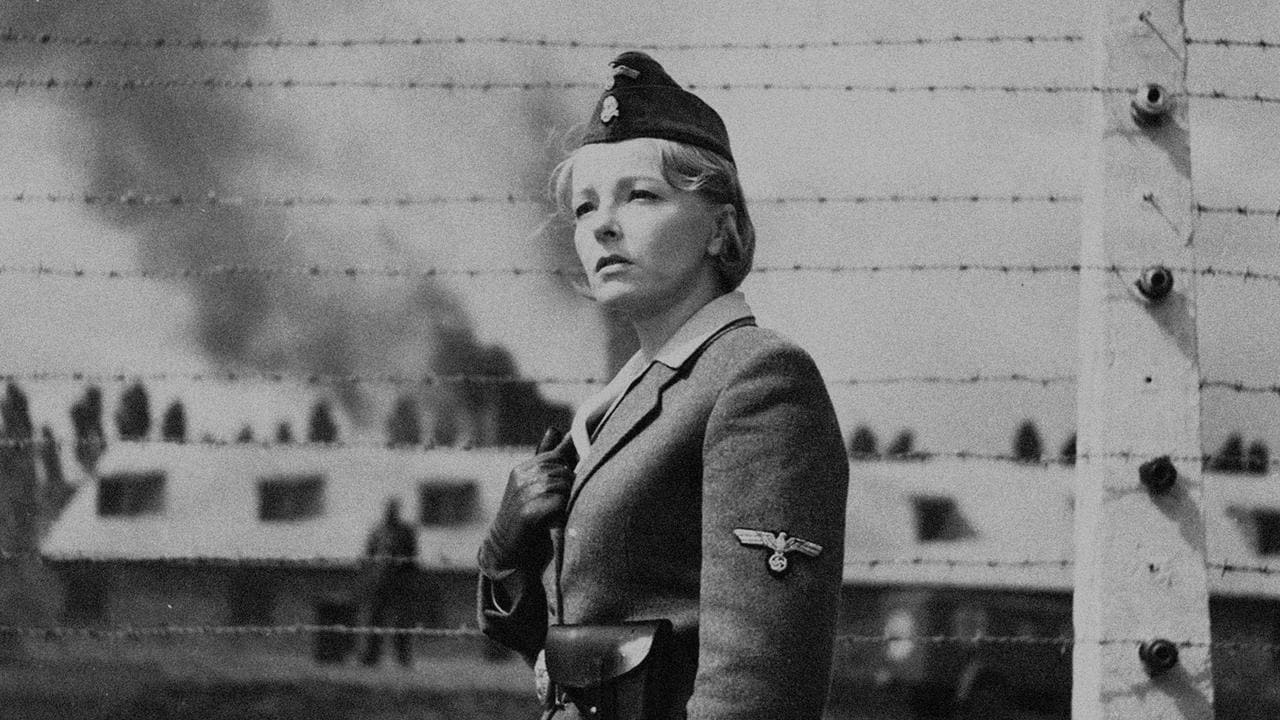Pavan Bhat
This movie primarily deals with recollections of memories through a series of still images and documentary style story-telling, as we see a woman traveling on a ship narrating the events of her life to her husband, after a chance meeting with a person aboard the ship, who bears resemblance to a Jewish prisoner at Auschwitz she had once saved, during her tenure as a Nazi officer. The film is all but an expanded portrayal of a chance meeting with a stranger aboard a ship, who somewhat bears a stark resemblance to a past acquaintance, strictly dealing with recollection and recounting of memories. This film also happens to be one of Andrzej Munk's unfinished works, setting the tone for the film in terms of the filmmaker's unfinished goals and dreams. Munk's friends took it upon themselves to finish this project as an ode to a visionary filmmaker, who met a premature end to his life. This piece of work not only reflects the protagonist's memories and trauma, but also that of the filmmaker, Andrzej Munk. The protagonist, now a retired Nazi SS officer, is aboard a ship with her husband, sharing figments of her experiences at a Jewish prison at Auschwitz, where she had certain personal encounters and conversations with a Jewish convict, who had everything but freedom. Although, at the helm of the story, it is a fleeting moment or a passing moment at its best, the film captures a score of unspoken emotions and sentiments. What the film tries to capture is a vague retelling of an incident wherein a person whom we believe to be a past acquaintance, could be more than what meets the eye. What makes it more intriguing is the prospect of reconciliation or reuniting of two opposing or similar sentiments or feelings. The film is unique in its storytelling and visual style as it follows a non-linear narrative with narration and documentary-style flip book image storytelling. The unfinished segments of Munk's film have been filled with pictures and artist's impressions of sequences to give the story a more coherent sensibility and feel. However, the segments that Munk himself had shot are a treat to watch, as he had tried to look at a chance meeting with a stranger bearing a resemblance, to be nothing but a fleeting or a passing moment, yet arrive at a point where the character consciences come to a consensus or maybe even come to terms with the harsh realities and truths that they were previously unaware of. Since the film primarily deals with the resurfacing of thoughts ignited by an external agent, in this case, the chance encounter on the ship, it is the utmost responsibility of the film to weave all nostalgic events and lost memories in realist terms, and in totality. Also, this film deals with the plights and sufferings of a country in general and its people in specific. Hence,it is important to observe the intricacies that the above specified film has to offer.
Polaris_DiB
It is very unfortunate that this movie wasn't finished, but it's also a little bit more unfortunate that people chose to finish it to the extant state it currently holds. Andrzej Munk's bits and pieces about a Nazi Concentration Camp officer and her relationship to a young Jewish woman she seems somewhat obsessed with has some quite obvious power. What he managed to capture before his untimely death is gorgeous moments of uncertainty, uncertainty in the actions, in the motivations, and in the ambiguous acting of the lead character. To be sure, the finished product would have had a lot to say about the strange relationship between life and death the Nazi's had while running the camps.Unfortunately, he died before he finished. So others took on the task of finishing it, filling the holes with sometimes literal voice-over ruminations of what Munk might have intended. So we have the intentional ambiguity of the primary text and the ambiguity of what that "intentional" was, meaning we're basically treated to an incomplete movie that basically begs for us to try to figure out how to complete it ourselves. The problem with that is that we already have that historical narrative with the Holocaust anyway, and the nature of the imagery Munk shot shows that he was leading somewhere significant.For one thing, much of the horrible imagery of the Holocaust, the stuff that's become trope for narratives about it, is kept in the background: the foreground is the face of the actress Alecsandra Slazka, which is achingly compelling and probably the reason why others felt it was necessary to finish the work despite itself. Many of the actions are not actually resolved, and plot holes and gaps that are literally unfilmed parts of the plots and missing imagery leave some unintended ambiguities that simply detract from the main story. It's clear that Munk was going somewhere. This film doesn't take it there. So it's kind of depressing to watch it go nowhere.--PolarisDiB
nbott
This is an incomplete deeply moving masterpiece. The scenes of Auschwitz are disturbing, of course, but more so set against a genuine human drama involving two women on opposite sides of this evil situation. We see how the best of human sensibility can be drawn out in the worst evil places. We witness mixed motives on the part of our overseer of prisoners. Why is she protective of this one concentration camp victim? We see her drawn to the beauty and the power of this simple woman victimized by this idiotic Nazi policy of confinement. She is also conflicted regarding this simple woman's love for her fiancee, a fellow prisoner.This is a situation where you can genuinely regret the cruel fate that would deny us this completed film which is so powerful even in the truncated form completed by his colleagues after Munk's death. See this film if you can get a chance.
liehtzu
It's difficult to make an accurate assessment of this film because it's incomplete. In fact, it's far from complete. Still, from the pieces of what is left we can see that "Passenger" may well have turned out to be a masterpiece. Like Jean Vigo, Andrzej Munk was considered a cinematic genius who died too soon (in a car crash in 1960). Munk is less well known than Vigo but he is still important, especially in the development of Polish film. "Passenger" is the story of a German woman on a cruise-liner who catches a glimpse of who she believes to be a Jewish girl she was in charge of at a concentration camp during the war. She recounts to her husband in flashback the story of how she tried to protect the girl from her vicious captors. Later on though, in another flashback, we see what really happened: the woman was not the girl's protector, but a sadist who relished her position of authority and her control over the lives of the prisoners she guarded. The cruise-liner scenes are all done using still shots with a narrator (or, the "restorer" of the film) trying to decipher how exactly Munk intended to piece the film together, while the flashback scenes are actual moving images, shot in fine black and white widescreen compositions. As the "narrator" tries to understand the film, what it would have become, so do we as viewers. In this way the film itself becomes perhaps even more labyrinthine than it would have been had Munk completed it, and we have an added level of mystery that is as frustrating as it is exciting. The incomplete film entices us to guess how it would have turned out, and while its certainly not a substitute for the completed film, this fragmented "Passenger" is brilliant and tantalizing nonetheless.


 AD
AD


